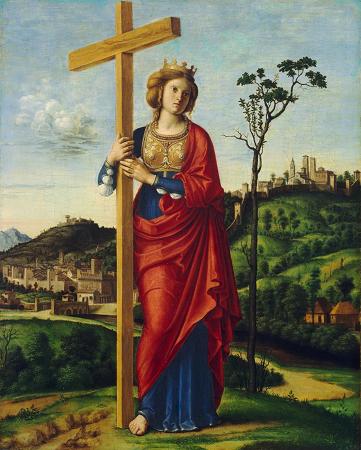Saint Bernard. Bernard of Clairvaux was a French abbot and a major leader in the reform of Benedictine monasticism that caused the formation of the Cistercian order. .He was sent to found a new abbey at an isolated clearing in a glen known as the Val d'Absinthe, about 15 kilometres southeast of Bar-sur-Aube. According to tradition, Bernard founded the monastery on 25 June 1115, naming it Claire Vallée, which evolved into Clairvaux. There Bernard preached an immediate faith, in which the intercessor was the Virgin Mary. In the year 1128, Bernard attended the Council of Troyes, at which he traced the outlines of the Rule of the Knights Templar, which soon became the ideal of Christian nobility. On the death of Pope Honorius II on 13 February 1130, a schism broke out in the church. King Louis VI of France convened a national council of the French bishops at Étampes in 1130, and Bernard was chosen to judge between the rivals for pope. By the end of 1131, the kingdoms of France, England, Germany, Portugal, Castile, and Aragon supported Pope Innocent II; however, most of Italy, southern France, and Sicily, with the Latin patriarchs of Constantinople, Antioch, and Jerusalem supported Antipope Anacletus II. Bernard set out to convince these other regions to rally behind Innocent. In 1139, Bernard assisted at the Second Council of the Lateran. He subsequently denounced the teachings of Peter Abelard to the pope, who called a council at Sens in 1141 to settle the matter. Bernard soon saw one of his disciples elected Pope Eugene III. Having previously helped end the schism within the church, Bernard was now called upon to combat heresy. In June 1145, Bernard traveled in southern France and his preaching there helped strengthen support against heresy. He preached at the Council of Vézelay to recruit for the Second Crusade. After the Christian defeat at the Siege of Edessa, the pope commissioned Bernard to preach the Second Crusade. The last years of Bernard's life were saddened by the failure of the crusaders, the entire responsibility for which was thrown upon him. Bernard died at the age of 63, after 40 years as a monk. He was the first Cistercian placed on the calendar of saints, and was canonized by Pope Alexander III on 18 January 1174. In 1830 Pope Pius VIII bestowed upon Bernard the title Doctor of the Church. Bernard's parents were Tescelin de Fontaine, lord of Fontaine-lès-Dijon, and Alèthe de Montbard, both members of the highest nobility of Burgundy. Bernard was the third of seven children, six of whom were sons. At the age of nine years, he was sent to a school at Châtillon-sur-Seine run by the secular canons of Saint-Vorles. Bernard had a great taste for literature and devoted himself for some time to poetry. His success in his studies won the admiration of his teachers. He wanted to excel in literature in order to take up the study of the Bible. He had a special devotion to the Virgin Mary, and he later wrote several works about the Queen of Heaven. Bernard expanded upon Anselm of Canterbury's role in transmuting the sacramentally ritual Christianity of the Early Middle Ages into a new, more personally held faith, with the life of Christ as a model and a new emphasis on the Virgin Mary. In opposition to the rational approach to divine understanding that the scholastics adopted, Bernard preached an immediate faith, in which the intercessor was the Virgin Mary. He is often cited for saying that Mary Magdalene was the Apostle to the Apostles. Bernard was only nineteen years of age when his mother died. During his youth, he did not escape trying temptations and around this time he thought of retiring from the world and living a life of solitude and prayer. In 1098 Robert of Molesme had founded Cîteaux Abbey, near Dijon, with the purpose of restoring the Rule of St Benedict in all its rigour. Returning to Molesme, he left the government of the new abbey to Alberic of Cîteaux, who died in the year 1109. After the death of his mother, Bernard sought admission into the Cistercian order. At the age of 22, while Bernard was at prayer in a church, he felt the calling of God to enter the monastery of Cîteaux. In 1113 Stephen Harding had just succeeded Alberic as third Abbot of Cîteaux when Bernard and thirty other young noblemen of Burgundy sought admission into the monastery. Bernard's testimony was so irresistible that 30 of his friends, brothers, and relatives followed him into the monastic life. The little community of reformed Benedictines at Cîteaux, which had so profound an influence on Western monasticism, grew rapidly.
more...







